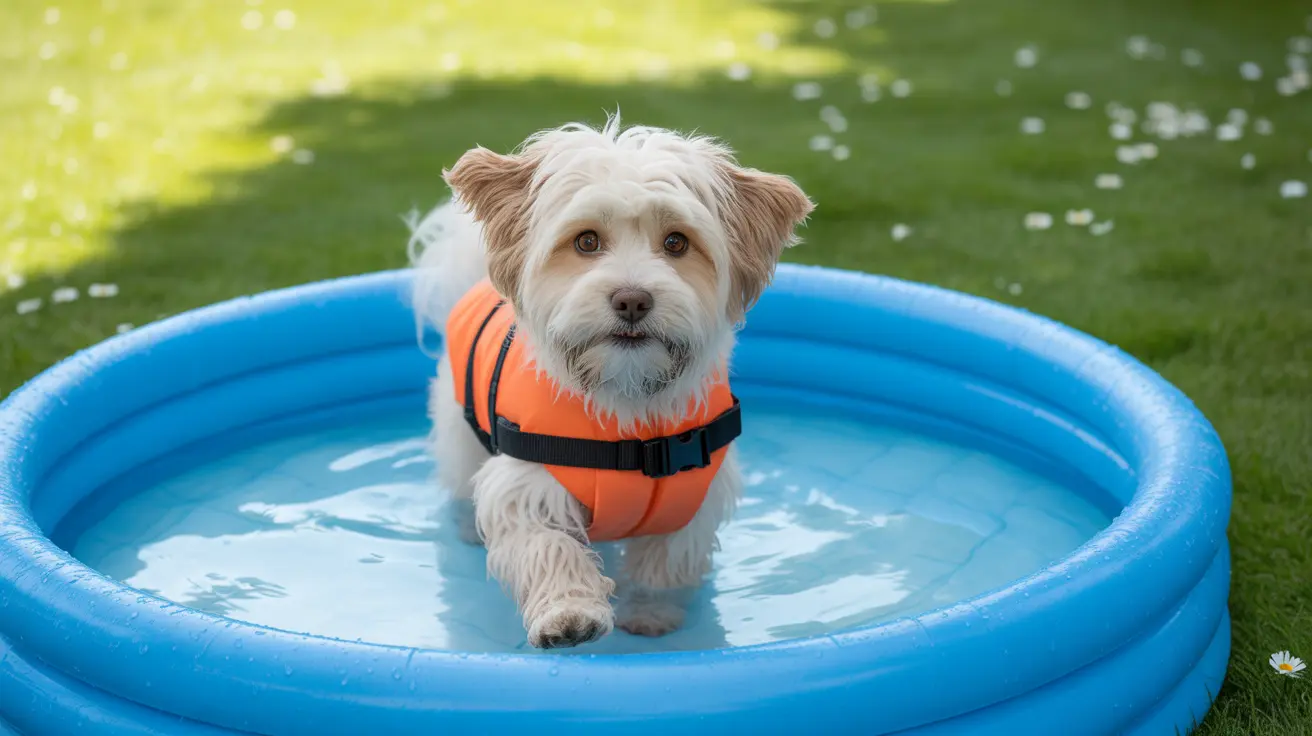Curious about whether Havanese dogs enjoy taking a dip? While these charming companion dogs aren't traditionally known as water breeds, many Havanese can learn to enjoy swimming with proper introduction and training. Let's explore their relationship with water and what you need to know as a Havanese owner.
Understanding your Havanese's potential affinity for swimming starts with recognizing their physical capabilities and individual personalities. While some Havanese take to water naturally, others may need more encouragement and support to feel comfortable splashing around.
Physical Capabilities for Swimming
Havanese dogs possess several physical characteristics that can make them capable swimmers. Their non-brachycephalic face structure means they don't struggle with breathing while swimming, unlike flat-faced breeds. Their lightweight build helps them stay buoyant in the water, making paddling easier.
However, their signature long, silky double coat isn't naturally water-repellent like those of traditional water dogs. This can affect their swimming experience and requires special attention to grooming after water activities.
Early Water Introduction and Training
The key to developing a positive relationship between your Havanese and water lies in early, gentle exposure. Puppies should be introduced to water gradually, starting with shallow areas and kiddie pools around 3-5 months of age.
Using positive reinforcement techniques, such as treats and praise, helps create pleasant associations with water. Always supervise these initial encounters and maintain a calm, encouraging presence.
Safety Considerations and Equipment
When introducing your Havanese to swimming, safety should be your top priority. A properly fitted dog life vest is essential, especially during initial training sessions. This safety equipment helps maintain proper swimming position and builds confidence.
Choose controlled environments for swimming lessons, such as private pools or calm lake shores with gradual entry points. Always ensure there's an easy exit route available.
Grooming Requirements for Water-Loving Havanese
The Havanese's luxurious coat requires special attention after swimming. Thorough rinsing and proper drying are essential to prevent matting and skin issues. Some owners opt for shorter "puppy cuts" during swimming season to simplify maintenance.
Regular grooming after water activities helps prevent tangles and ensures your dog's coat remains healthy and beautiful. Pay special attention to drying between toe pads and under ears.
Individual Preferences and Personality Factors
Like humans, each Havanese has unique preferences when it comes to water activities. Some naturally gravitate toward splashing and swimming, while others prefer to keep their paws dry. Respect your dog's individual comfort level and never force them into the water.
Environmental factors, previous experiences, and early exposure all play crucial roles in determining whether your Havanese will enjoy swimming.
Frequently Asked Questions
Do Havanese dogs naturally like to swim, and what factors affect their enjoyment of water?
Havanese dogs don't naturally gravitate toward swimming, as they weren't historically bred for water work. Their enjoyment depends on factors like early exposure, individual personality, and positive experiences during introduction to water.
How can I safely introduce my Havanese puppy to swimming for the first time?
Start with shallow water in a controlled environment around 3-5 months of age. Use a properly fitted life vest, positive reinforcement, and gradually progress from kiddie pools to deeper water as confidence builds.
What grooming challenges should I expect after my Havanese goes swimming?
The Havanese's long, silky coat requires thorough rinsing, careful drying, and extra attention to prevent matting after swimming. Regular brushing and proper drying are essential to maintain coat health.
Are life jackets necessary for Havanese when swimming, and how do they help?
Yes, life jackets are strongly recommended, especially during training. They provide buoyancy, help maintain proper swimming position, and boost confidence while allowing full range of motion for paddling.
What safety precautions should I take when letting my Havanese swim in pools or natural water?
Always supervise swimming sessions, ensure easy exit points, provide fresh drinking water, and check water quality. In natural settings, watch for hazards like strong currents or toxic algae. Keep swimming sessions short to prevent fatigue.
Final Thoughts
While Havanese dogs can certainly learn to swim and potentially enjoy water activities, success depends on proper introduction, training, and respect for individual preferences. With patience, proper safety measures, and consistent positive reinforcement, many Havanese can discover the joy of swimming as part of their exercise routine.






